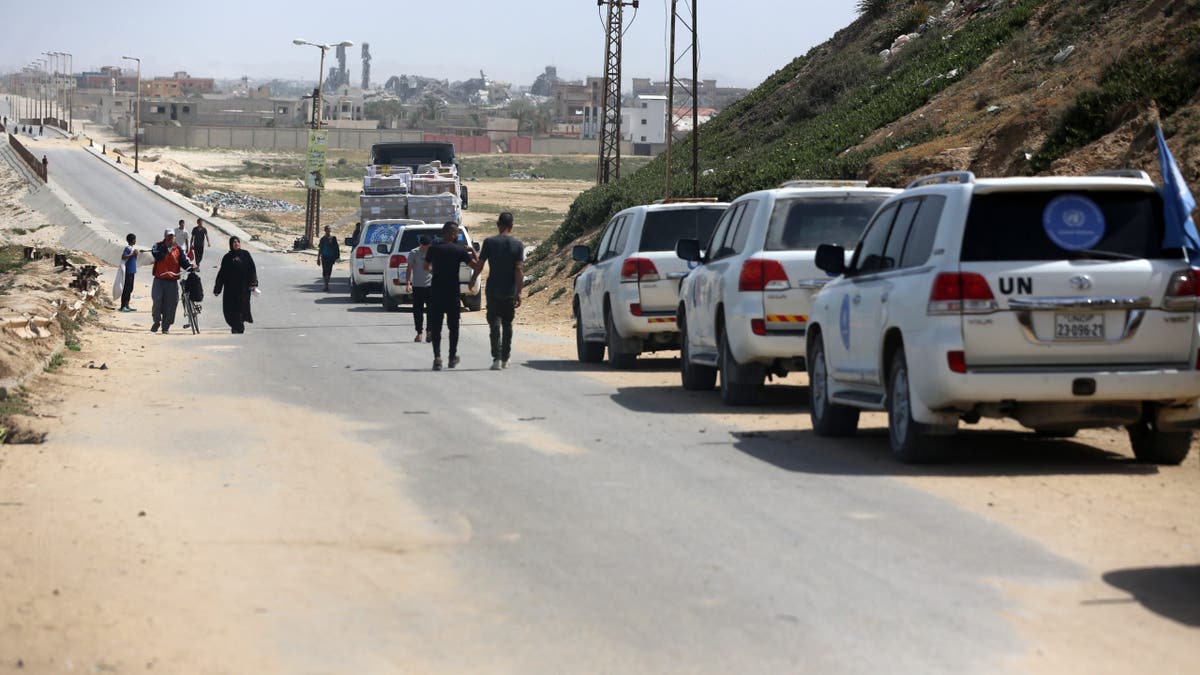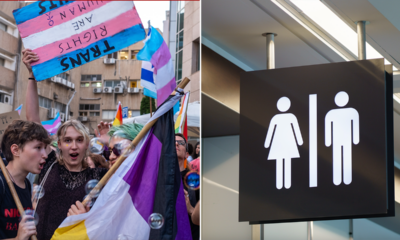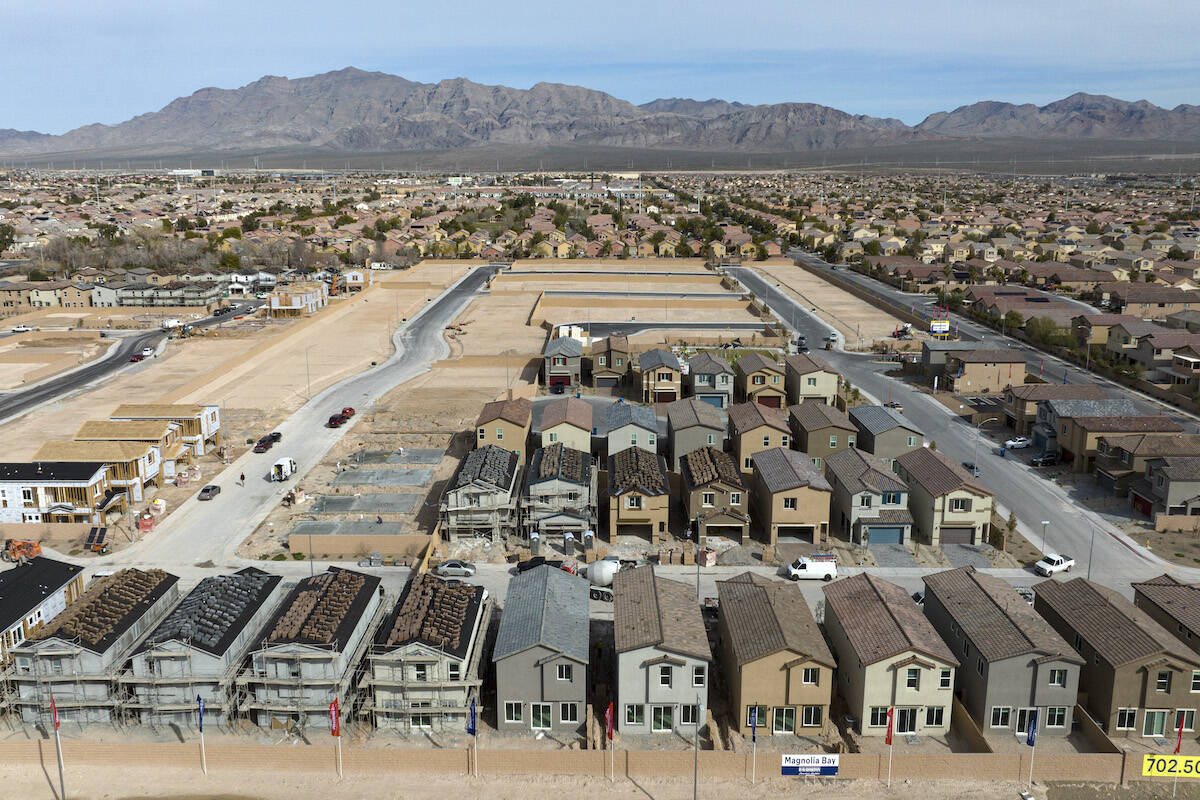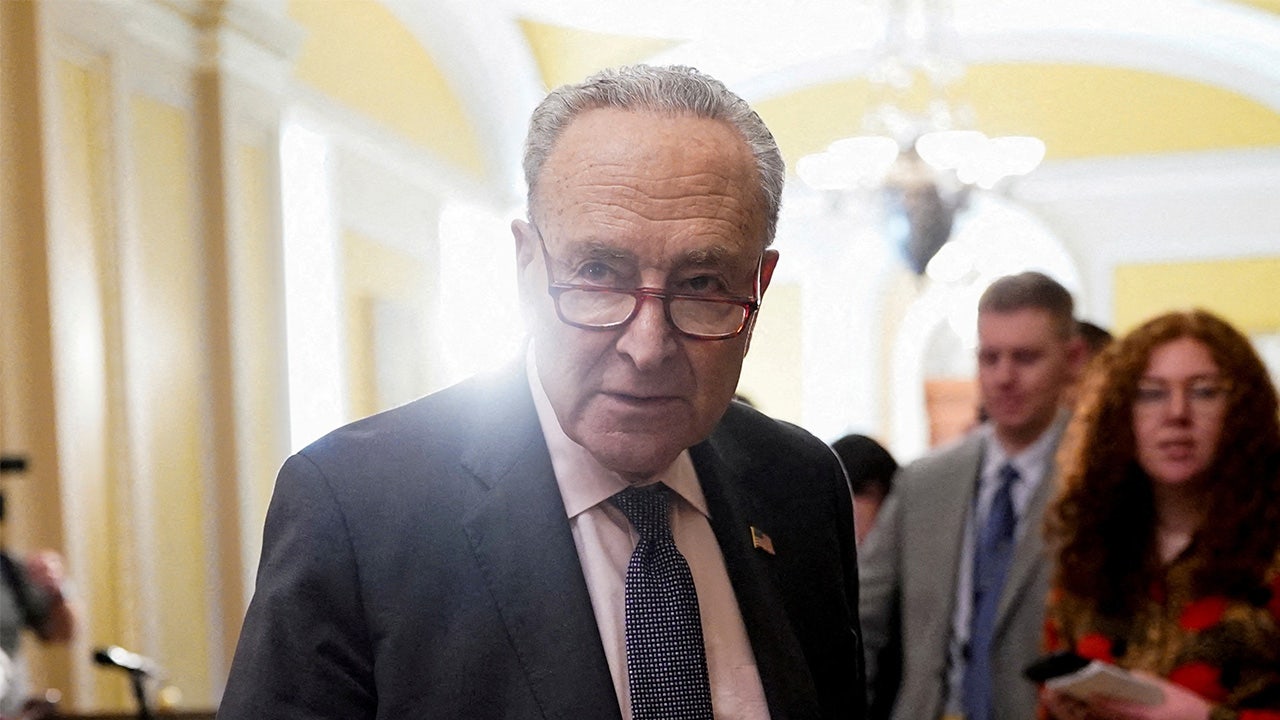- LATEST DEVELOPMENTS:
- ‘We are striking our enemies with unprecedented might,’ Netanyahu says. ‘I emphasise that this is only the beginning.’
- U.N. head Guterres: situation has reached ‘a dangerous new low’.
World
‘Only the beginning’ says Netanyahu as Israel makes first raids into Gaza
/cloudfront-us-east-2.images.arcpublishing.com/reuters/FJK5QQY7KJJEHLZWKTEWMQQWAM.jpg)
JERUSALEM, Oct 13 (Reuters) – Israeli infantry made their first raids into the Gaza Strip on Friday since Hamas fighters rampaged through southern Israel, and Prime Minister Benjamin Netanyahu said a campaign of retaliation had only just begun.
Israel has vowed to annihilate Hamas after its fighters burst out of Gaza a week ago and stormed through towns and villages, killing 1,300 Israelis, mainly civilians, and making off with scores of hostages.
Since then Israel has placed the Hamas-run Gaza Strip, home to 2.3 million Palestinians, under a total siege and bombarded it with unprecedented air strikes. Gaza authorities say 1,900 people have died.
On Friday Israel gave more than a million residents of the northern half of Gaza 24 hours to flee to the south to avoid an onslaught. Hamas vowed to fight to the last drop of blood and told residents not to go.
Israeli military spokesperson Rear Admiral Daniel Hagari said troops backed by tanks had mounted raids to attack Palestinian rocket crews and seek information on the location of hostages, the first official account of ground troops in Gaza since the crisis began.
“We are striking our enemies with unprecedented might,” Netanyahu said in a brief statement which, unusually, was televised after the Jewish Sabbath had begun. “I emphasise that this is only the beginning.”
Several thousand Gaza residents took to roads heading out of the northern part of the Gaza Strip, but it was impossible to assess their numbers. Many others said they would not leave.
“Death is better than leaving,” said Mohammad, 20, standing in the street outside a building reduced to rubble in an earlier Israeli air strike near the centre of Gaza.
Mosques broadcast the message: “Hold on to your homes. Hold on to your land”.
“We tell the people of northern Gaza and from Gaza City, stay put in your homes, and your places,” Eyad Al-Bozom, spokesman for the Hamas Interior Ministry, told a news conference.
Gaza authorities said 70 people were killed and 200 were wounded when Israel struck cars and trucks carrying people fleeing the north of the strip for the south. Reuters could not independently verify the reported incident.
The United Nations and other organisations warned of a disaster if so many people were forced to flee, and said the siege of the enclave should be lifted to let in aid.
The situation in Gaza has reached a “a dangerous new low”, U.N. Secretary General Antonio Guterres said on Friday. “We need immediate humanitarian access throughout Gaza, so that we can get fuel, food and water to everyone in need. Even wars have rules.”
Earlier, a U.N. spokesperson Stephane Dujarric said it would impossible for Gazans to obey Israel’s order to leave the north without “devastating humanitarian consequences”, prompting a rebuke from Israel that the U.N. should condemn Hamas and support Israel’s right to self-defence.
“The noose around the civilian population in Gaza is tightening. How are 1.1 million people supposed to move across a densely populated war zone in less than 24 hours?” U.N. aid chief Martin Griffiths wrote on social media.
‘DISTANCE YOURSELVES FROM HAMAS’
[1/19]Families of staff of international organizations shelter at a United Nations center after UNRWA said it relocated its central operations center to the south of Gaza Strip after Israel’s call for more than 1 million civilians in northern Gaza to move south within 24 hours, amid the… Acquire Licensing Rights
White House national security spokesman John Kirby said such a huge evacuation was a “tall order”, but that Washington would not second guess Israel’s decision to tell civilians to get out.
“We understand what they’re trying to do and why they’re trying to do this – to try to isolate the civilian population from Hamas, which is their real target,” he said on MSNBC.
Mahmoud Abbas, president of the Palestinian Authority that is a rival of Hamas, told U.S. Secretary of State Antony Blinken in Jordan that the forced displacement of Palestinians in Gaza would constitute a repeat of 1948, when hundreds of thousands of Palestinians fled or were driven from what is now Israel. Most Gazans are the descendants of such refugees.
Gaza is already one of the most crowded places on earth, and for now there is no way out. Israel has imposed a total blockade, and Egypt, which also has a border with the enclave, has so far resisted calls to open it to fleeing residents.
‘I PROMISE YOU WE WILL WIN’
Hamas issued a video on Friday purporting to show its fighters cuddling a baby and a toddler in one of the villages it ransacked. Israel has said entire families were slaughtered.
“We are fighting for our home. We are fighting for our future,” Israeli Defence Minister Yoav Gallant said, meeting U.S. Defence Secretary Lloyd Austin, who came to Israel a day after a visit by Secretary of State Antony Blinken. “The path will be long, but ultimately I promise you we will win.”
Austin said military aid was flowing into Israel but that this was the time for resolve and not revenge.
On Friday Blinken travelled to Jordan where he met King Abdullah as well as Abbas, whose Palestinian Authority exercises limited self-rule in the Israeli-occupied West Bank but lost control of Gaza to Hamas in 2007. Blinken later travelled to Qatar, a U.S. ally with influence among Islamist groups.
In the West Bank, demonstrators supporting Gaza fought gun battles with Israeli security forces. Palestinian officials said 11 people were shot dead.
There have also been fears of hostilities spreading to new fronts, including Israel’s northern border with Lebanon, where clashes this week have already been the deadliest since 2006.
Reuters news videographer Issam Abdallah was killed on Friday while working in southern Lebanon. Reuters said it was seeking more information and working with the authorities in the region.
Earlier, Reuters reported that Israeli shelling had struck a Lebanese army observation post at the border. The Israeli military said it fired in response to a suspected armed infiltration, which it later said had been a false alarm. Lebanese state media reported that shells struck near Alma Al-Shaab and Dhayra, sites of repeated clashes in the past week.
Israel’s U.N. envoy said it would investigate what had happened in the area following the journalist’s death.
“We always try to mitigate and avoid civilian casualties. Obviously, we would never want to hit or kill or shoot any journalist that is doing its job,” Gilad Erdan said.
Reporting by Henriette Chacar, Dedi Hayun, Maayan Lubell, Emily Rose, James Mackenzie in Jerusalem, Michelle Nichols in New York, Emma Farge in Geneva, Jeff Mason in Washington, Humeyra Pamuk in Tel Aviv, Steve Gorman and Dan Whitcomb in Los Angeles and Emma Farge in Geneva; Writing by Peter Graff; Editing by Cynthia Osterman
Our Standards: The Thomson Reuters Trust Principles.

Continue Reading
World
US Postal Chief DeJoy Stepping Down Immediately
WASHINGTON (Reuters) – U.S. Postmaster General Louis DeJoy, who said earlier this month he had asked the government efficiency team led by Elon Musk for assistance with a number of issues, is resigning effective Monday, the agency said. (Reporting by David Shepardson) Copyright 2025 Thomson Reuters.
World
UN blames Israelis for attack on compound but doesn't mention Hamas, says forced to reduce Gaza footprint

The United Nations is once again under the microscope for blaming Israel for an attack on a compound as it opts to curb its footprint in Gaza, according to the world body.
The spokesperson for United Nations Secretary-General António Guterres issued a statement noting the U.N. had “taken the difficult decision to reduce the Organization’s footprint in Gaza” even as “humanitarian needs soar.”
U.N. spokesman Stephane Dujarric claimed that “information currently available” indicated that a strike on the U.N.’s Deir al Balah compound on March 19 was “caused by an Israeli tank.” One U.N. employee was killed in the incident, and six others were wounded, Dujarric said.
DOGE USAID BUDGET HIT UN IN ‘WORST LIQUIDITY CRISIS SINCE ITS ESTABLISHMENT’
U.N. headquarters in New York City on Aug. 21, 2014. (iStock)
On the date of the incident, the Israel Defense Forces Tweeted that “contrary to reports, the IDF did not strike a U.N. compound in Deir el Balah.” The IDF asked media outlets “to act with caution regarding unverified reports.”
The IDF told Fox News Digital Monday that the U.N.’s claim was “absolutely not accurate.”
While his statement named Israel, it stopped short in naming the terrorist group Hamas or other extremist groups operating in Gaza. “The location of this U.N. compound was well known to the parties to the conflict,” Dujarric continued. “I reiterate that all parties to the conflict are bound by international law to protect the absolute inviolability of U.N. premises. Without this, our colleagues face intolerable risks as they work to save the lives of civilians.” Dujarric added that the “Secretary-General strongly condemns these strikes and demands a full, thorough and independent investigation on this incident.”
PAUSE IN US FOREIGN AID HAS UN IN PANIC OVER FUNDING CUTS, TRUMP SAYS WORLD BODY ‘NOT BEING WELL RUN’

Israeli troops deployed to Gaza. (IDF)
Foundation for Defense of Democracies research analyst Joe Truzman told Fox News Digital that Dujarric’s statement gave the “impression… that the United Nations has deliberately avoided criticizing Hamas and the other Palestinian terrorist groups in Gaza for fear of creating friction with the armed groups. This failed strategy has only emboldened Hamas and its allies, allowing them to exploit UNRWA facilities in Gaza with impunity. Time and again, authorities have uncovered terrorist infrastructure connected to UNRWA facilities, including agency employees who were members of terrorist groups and committed atrocities on October 7.”
On March 23, the IDF killed Hamas political bureau member Ismail Barhoum while he was purportedly operating out of Nassar Hospital in Khan Younis, Gaza. After media outlets, including Al Jazeera, claimed that Barhoum was being treated at the hospital, IDF international spokesperson Lt. Col. Nadav Shoshani Tweeted that Barhoum had “held meetings with other terrorists and senior figures in the terrorist organization” while remaining “in the hospital for many weeks.”
AT LEAST 19 KILLED IN ISRAELI STRIKES IN GAZA, INCLUDING SENIOR HAMAS LEADER

U.N. and the World Health Organization vehicles wait to enter the Gaza Strip with aid intended for hospitals on April 25, 2024. (Majdi Fathi/TPS)
Truzman said the IDF’s explanation was “highly plausible.”
“Hamas has become highly skilled at persuading the public that it does not operate from civilian infrastructure – a demonstrably false assertion,” Truzman said. In a tactic he has “witnessed for years,” he said that “Hamas and its allies deliberately embed themselves within civilian areas to evade detection.”

Israeli soldiers sit on a tank in the northern Gaza Strip on March 18, 2025. (Amir Levy/Getty Images)
“The public must understand that Hamas’ top priority is not safeguarding Palestinian civilians but ensuring the Islamist group’s survival,” Truzman said.
Following a ceasefire and partial hostage exchange that saw 25 living and eight deceased hostages returned to Israel and almost 2,000 Palestinian prisoners released, conflict has returned to Gaza. With support from the Trump White House, Israel cut humanitarian aid to Gaza earlier this month in order to pressure Hamas into an extension of the ceasefire, and to free the hostages.
World
At least five killed in RSF shelling in Sudan’s Khartoum: Lawyers’ group

The attack comes as the Sudanese army pushes to take full control of the capital.
Paramilitary shelling on a mosque in eastern Khartoum has killed at least five people and injured dozens, a Sudanese pro-democracy lawyers’ group has said.
The attack on Monday, which has been blamed on the paramilitary Rapid Support Forces (RSF), targeted civilians during evening tarawih prayers at a mosque in the East Nile district of Khartoum, said the Emergency Lawyers network, which has been documenting abuses by both the RSF and the Sudanese Armed Forces (SAF).
This is the second reported attack on civilians since the RSF lost central Khartoum, including the presidential palace, in a major government army offensive on Friday.
On Sunday, RSF artillery also pounded Omdurman, Khartoum’s twin city, killing three civilians in what eyewitnesses described as some of the heaviest bombardments in recent months.
The Sudanese army claims to have seized control of the main headquarters of the country’s central bank from the RSF as it continues to make advances in the capital.
Nabil Abdallah, an army spokesman, said in a statement to the AFP news agency on Saturday that the soldiers had “eliminated hundreds of militia members who tried to escape through pockets in central Khartoum”.
The RSF has consolidated control in the west, hardening battle lines and moving Sudan towards de facto partition. The RSF is setting up a parallel government in areas it controls, although that is not expected to secure widespread international recognition.
Since April 2023, the military, led by army chief Abdel Fattah al-Burhan, has been in an ongoing conflict with the RSF, headed by Burhan’s former deputy commander, Mohamed Hamdan Dagalo.
But the two-year-long conflict has left the country in a deep humanitarian crisis, with tens of thousands of people killed and more than 12 million people displaced.
-

 Midwest1 week ago
Midwest1 week agoOhio college 'illegally forcing students' to share bathrooms with opposite sex: watchdog
-

 News1 week ago
News1 week agoFor Canadians Visiting Myrtle Beach, Trump Policies Make the Vibe Chillier
-

 News6 days ago
News6 days agoTrump Administration Ends Tracking of Kidnapped Ukrainian Children in Russia
-

 News6 days ago
News6 days agoVance to Lead G.O.P. Fund-Raising, an Apparent First for a Vice President
-

 News1 week ago
News1 week agoArlington National Cemetery stops highlighting some historical figures on its website
-

 News1 week ago
News1 week agoBlack Lives Matter Plaza Is Gone. Its Erasure Feels Symbolic.
-

 Movie Reviews1 week ago
Movie Reviews1 week agoPerusu Movie Review: Mourning wood provides comedy that won’t go down in history
-

 Politics1 week ago
Politics1 week agoHouse Democrats to hold 'Day of Action' to push back against GOP-backed spending bill



















